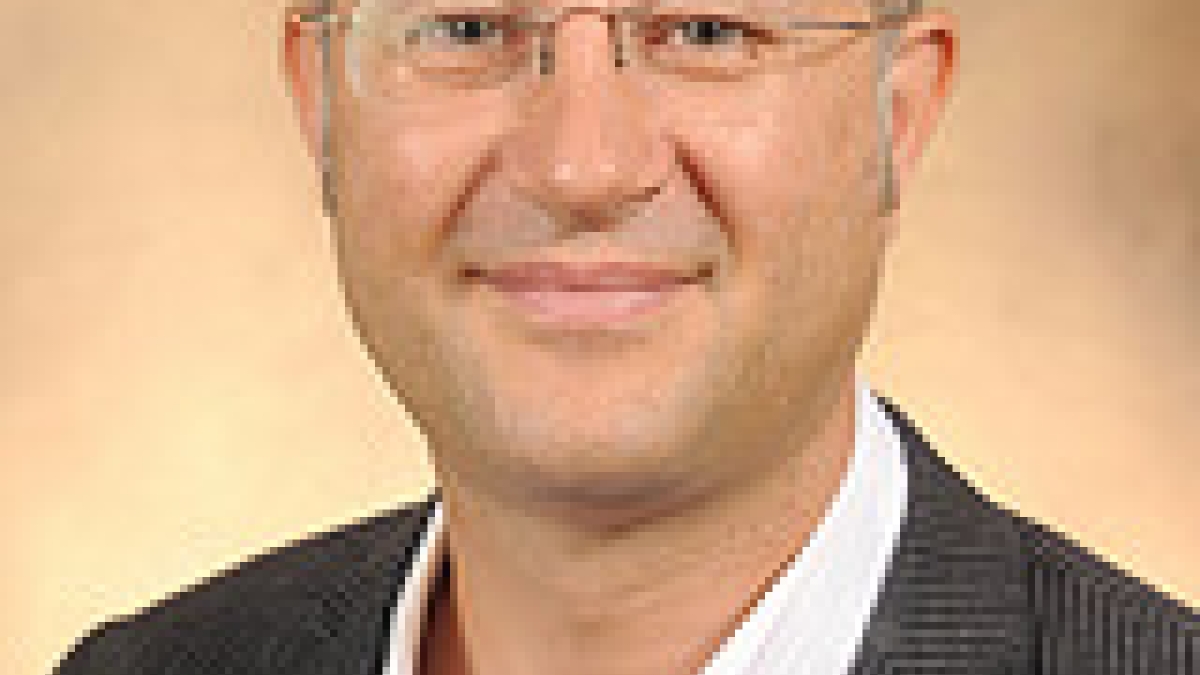Biodesign Institute appoints four faculty members to expand research capabilities

An oncologist, immunologist, ecologist and geneticist have been hired by Arizona State University to expand the university’s research capabilities. The four new professors will join research teams at the Biodesign Institute and instruct courses in the School of Life Sciences.
The new hires include:
• Karen Anderson, associate professor in Biodesign’s Virginia G. Piper Center for Personalized Diagnostics
• Joseph Blattman, assistant professor in Biodesign’s Center for Infectious Diseases and Vaccinology
• Hinsby Cadillo-Quiroz, assistant professor in Biodesign’s Swette Center for Environmental Biotechnology
• Marco Mangone, assistant professor in Biodesign’s Virginia G. Piper Center for Personalized Diagnostics
Oncologist brings clinical expertise to ASU
Specializing in women’s cancers at the bedside and at the bench, Karen Anderson’s cancer research focuses on understanding immune recognition of solid tumors. Bringing clinical expertise to the research setting, she will provide crucial insights into the most pressing issues that are in need of resolution from lab research. Her work has translated basic discoveries into clinical practice, as demonstrated by her contributions to five cancer vaccine and biomarker clinical trials.
Prior to ASU, Anderson was a member of the Cancer Vaccine Center at the Dana Farber Cancer Institute at Harvard Medical School. She is board certified in internal medicine, oncology and hematology.
Anderson earned a bachelor’s degree in chemistry from the University of Virginia, and medical and doctoral degrees from Duke University. She completed her internship and residency at Brigham and Women’s Hospital, and a clinical fellowship in adult hematology and oncology at the Dana Farber Cancer Institute. Anderson is board certified in internal medicine, oncology and hematology.
Immunologist unravels cancer and HIV
Blattman’s immunology research focuses on elicitation of T cell responses during vaccination and viral infection.
Specifically, his laboratory seeks to understand how T cells are selected for participation in the response to a vaccine or against a pathogen, the immune mechanisms required to elicit such a response, and the consequences of increased T cell immunity during subsequent encounters with a pathogen. These studies include both a theoretical framework for modeling disease and experimental tests of the predictions arising from the models. Currently, his laboratory is trying to link immunological analysis of vaccine responses with epidemiological measures of vaccine efficacy and disease, two fields that have never been combined in a controlled laboratory setting.
Prior to his appointment at ASU, Blattman was a research assistant professor at the University of Washington, an affiliate investigator at the Fred Hutchinson Cancer Research Center, and a research affiliate at the Washington National Primate Research Center.
Blattman earned a bachelor’s degree with distinction in biochemistry from the University of Nevada, Reno and a doctoral degree in immunology and molecular pathogenesis from Emory University.
Methane-producing microbes fuel ecologist’s discoveries
An expert on archaea and bacteria, Cadillo-Quiroz studies how these microorganisms can advance our understanding of ecological and evolutionary diversification and generate methane gas. Specifically, he works to identify genetic traits that structure archaeal and bacterial communities and genes or genomic regions unique to these species, he assesses the impact of microbial diversity in various environments, and he mathematically models rates of ecosystem processes in which these organisms are involved.
Prior to his appointment at ASU, Cadillo-Quiroz was a postdoctoral research associate at the University of Oregon’s Institute of Ecology and Evolution where he studied variability of methane production in anaerobic ecosystems. Before that, he was a postdoctoral research associate at the University of Illinois’s Department of Microbiology where his work focused on the genomics and evolutionary trajectory of populations of the “Archaea Sulfolobus islandicus,” which grow in volcanic springs.
Cadillo-Quiroz earned a bachelor’s degree and a professional title in microbiology with honors from the School of Biological Sciences at San Marcos National University in Lima, Peru. He completed a doctoral degree in microbiology from Cornell University.
From worms to humans – geneticist uncovers junk DNA functions
True to the saying “one person’s trash is another person’s treasure,” Mangone uncovered important portions of what was considered junk DNA in the genome of C. elegans, a free-living, transparent roundworm that lives in temperate soil environments. The effort was part of modENCODE project, a $57 million multicenter initiative funded by the National Human Genome Research Institute to identify all functional elements in the fruit fly and worm genomes.
Mangone’s work to clone these regions in C. elegans genome – numbering around 20,000 genes – was published in Science and has lead to the discovery of countless new regulatory signals. Mangone has now turned his attention to studying how these genetic sequences play a role in human disease.
Prior to his ASU appointment, Mangone was a postdoctoral fellow at the Center for Genomics and Systems Biology at New York University. He earned a doctoral degree in molecular biology from the Watson School of Biological Sciences at Cold Spring Harbor Laboratory in New York.